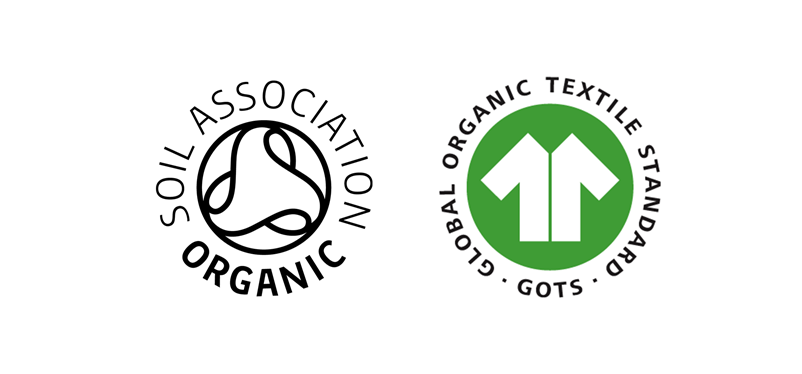- Soil Association
- Take action
- Organic living
- Fashion and textiles
- Small steps to making sustainable fashion choices

Small steps to making sustainable fashion choices
Together we can play our part to help combat the climate crisis. Here are our top tips for making more sustainable fashion choices
1. Look for the organic logo
Buy organic clothing and textiles and you'll be protecting both people and planet. Look for the Soil Association organic or the Global Organic Textiles Standard logos:
 We’ve also put together a handy list of certified organic brands here.
We’ve also put together a handy list of certified organic brands here.
Take a pledge for our planet - make your next buy an item of certified organic clothing.
2. Look after your clothes
Read the label to make sure you’re washing them in the right way. You could learn how to sew and mend your clothes yourself.
Upcycle your clothes. This is a brilliant way to transform a well-loved piece into something entirely new. Even saving your scraps as cloths to clean a bike will help cut down on resources used to produce new materials.
Take a pledge for our planet - try upcycling an old item of clothing this month.
3. Organise a clothes swap
Swap clothes with family and friends. You could even organise a clothes swap in your local community.
4. Buy second-hand
You can find so many bargains and hidden gems in charity shops and second-hand retailers. Plus, you could be supporting some amazing charities.
Take a pledge for our planet - buy your next outfit from a second-hand store.
5. Follow the 'less and better' mantra
Around a third of the clothes in the average Brit’s wardrobe haven’t been worn in the past year.
Embrace the capsule wardrobe. Get creative with mixing and matching what you already own to create new looks. On Instagram, check out #iworeitagain for inspiration on changing up your outfits. The most sustainable item of clothing you own is already in your wardrobe.
6. Tell brands you want more organic choices
Join us in shouting about the benefits of organic cotton. Tell businesses and retailers that you want them to go organic.
Use our template post to tweet your favourite brands. Ask them to go #OrganicForThePlanet
You can also browse the many organic brands that are already certified here.
